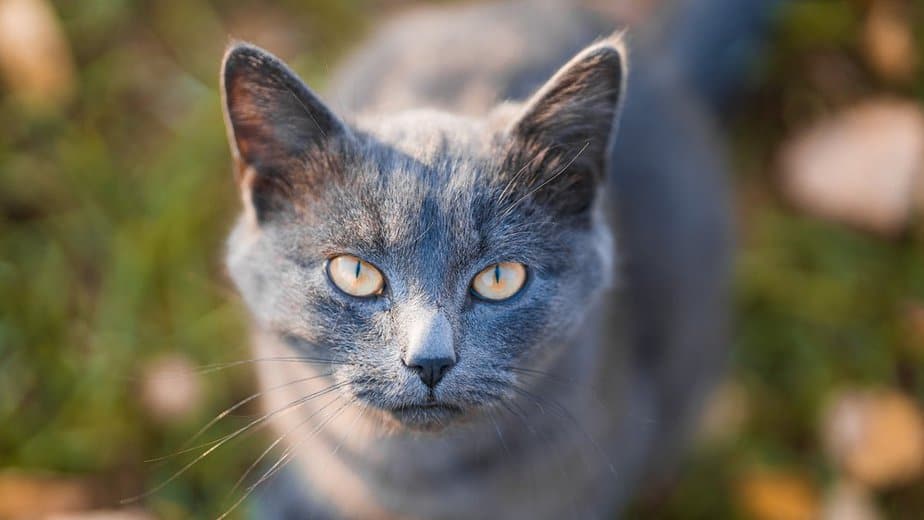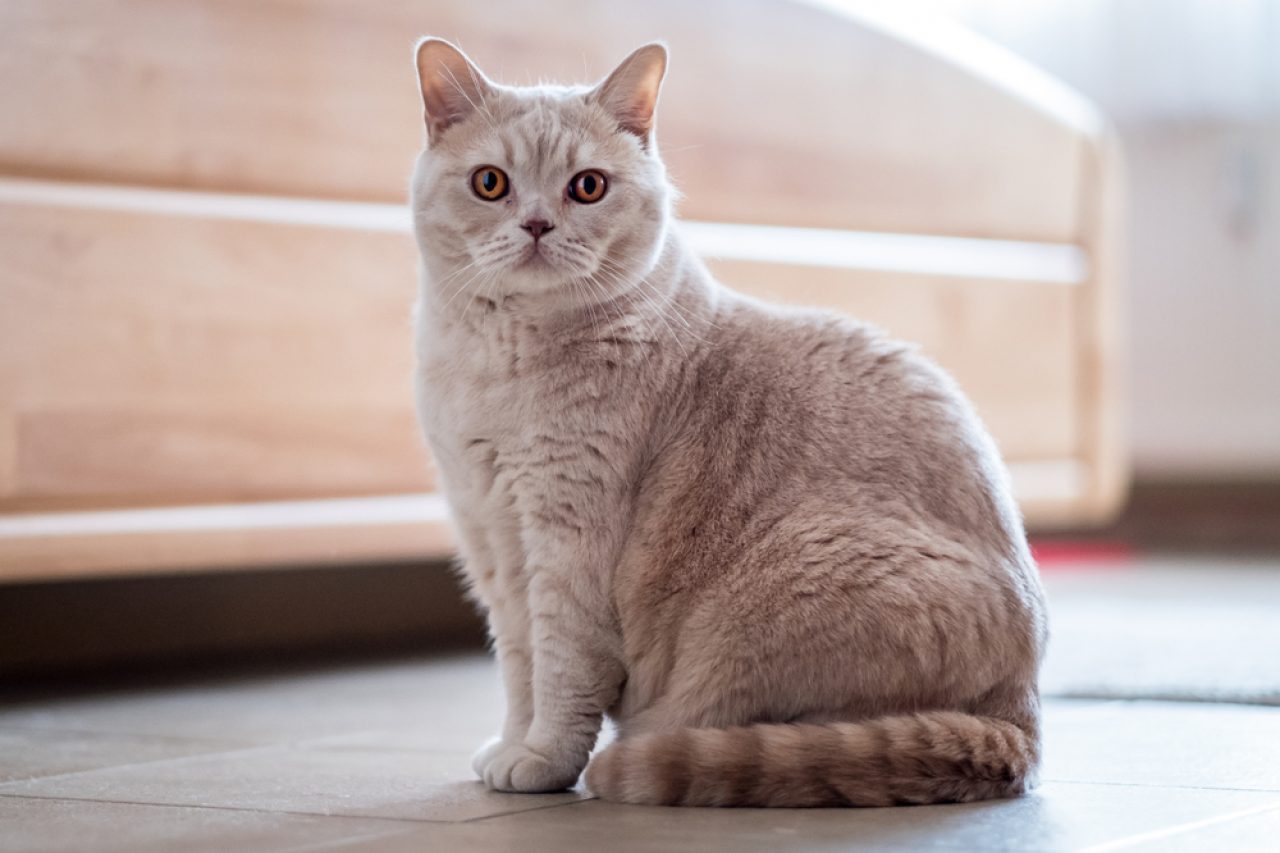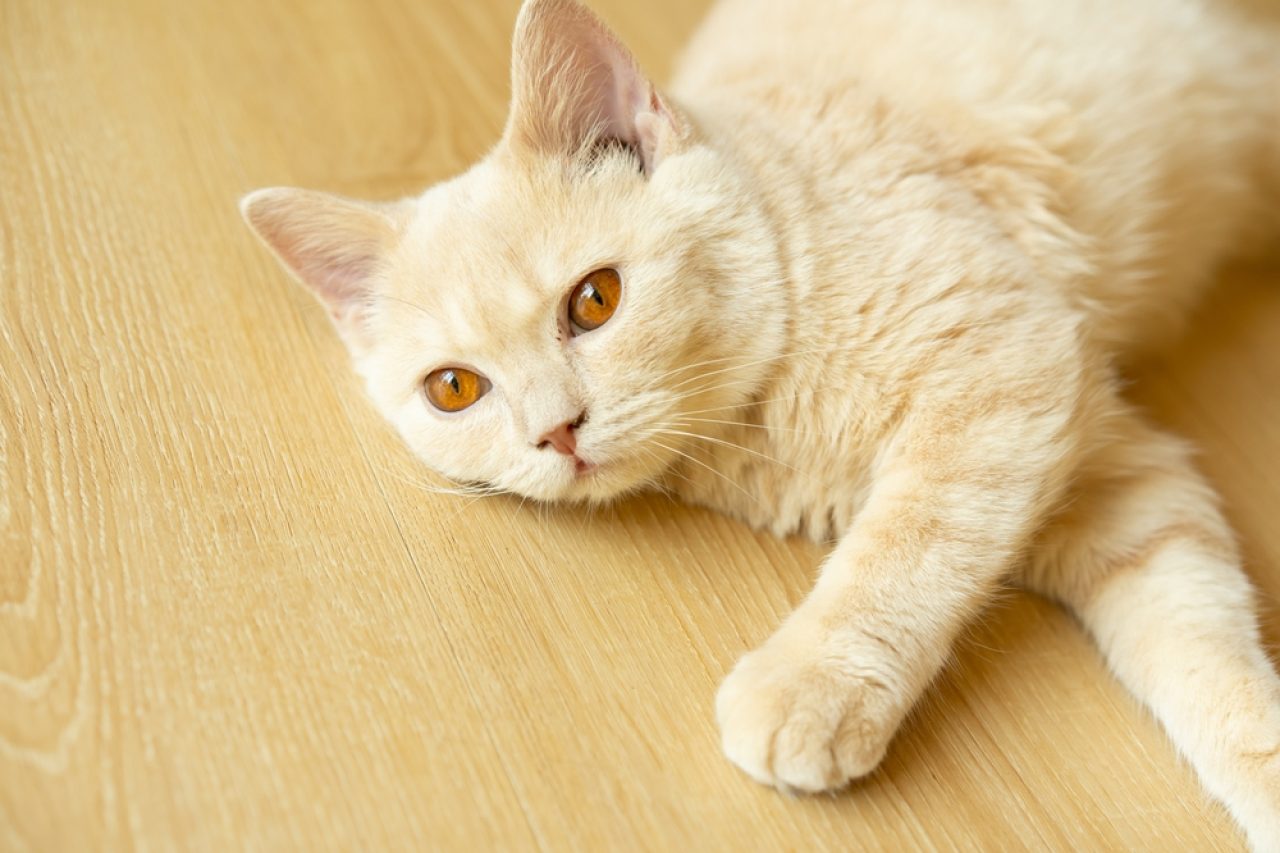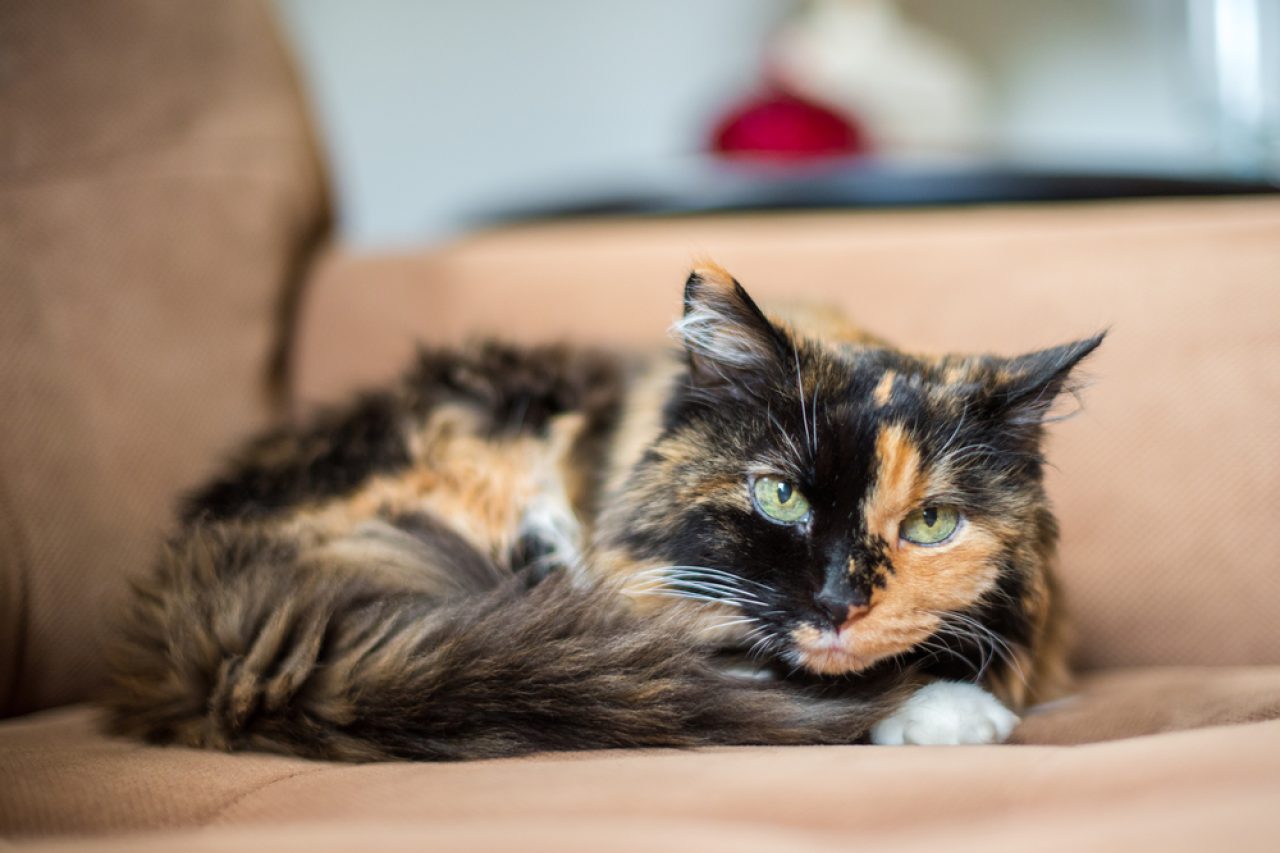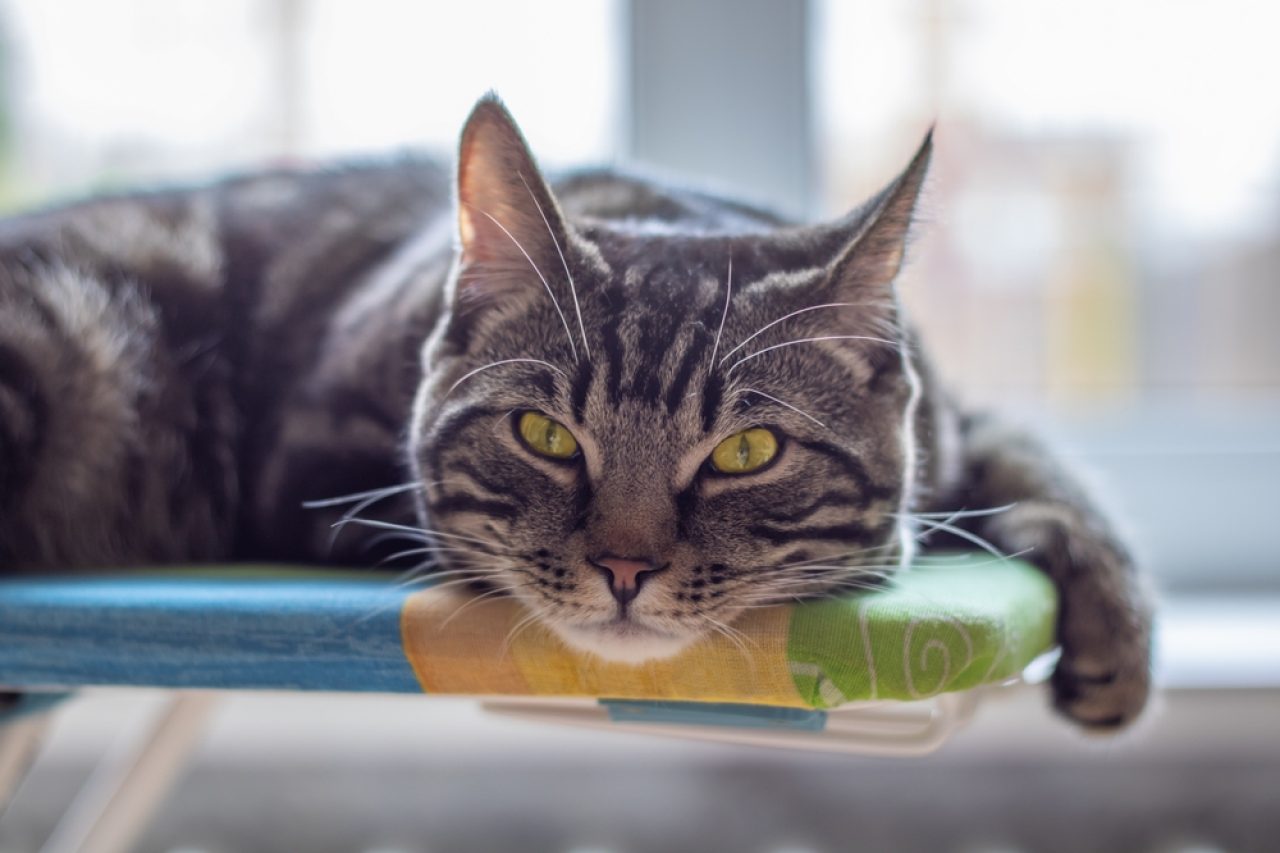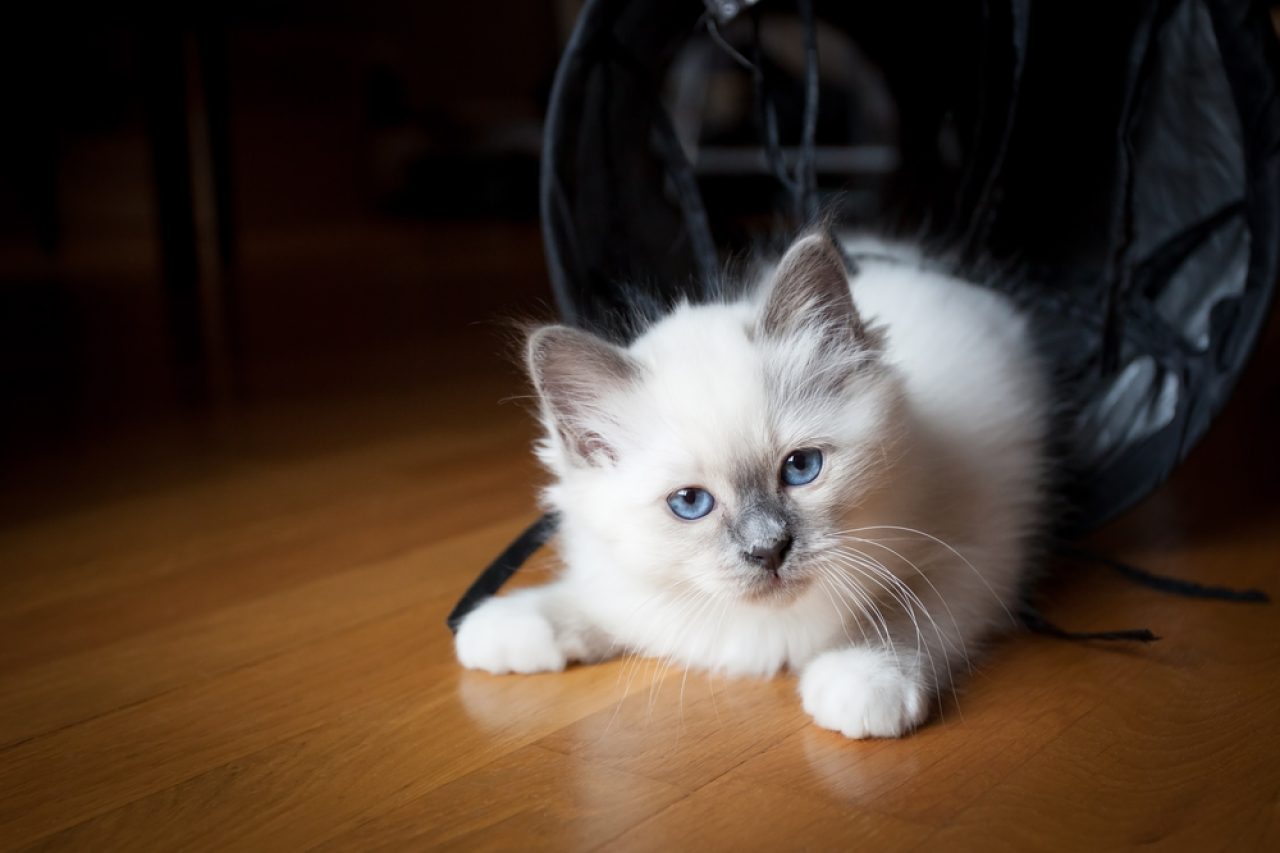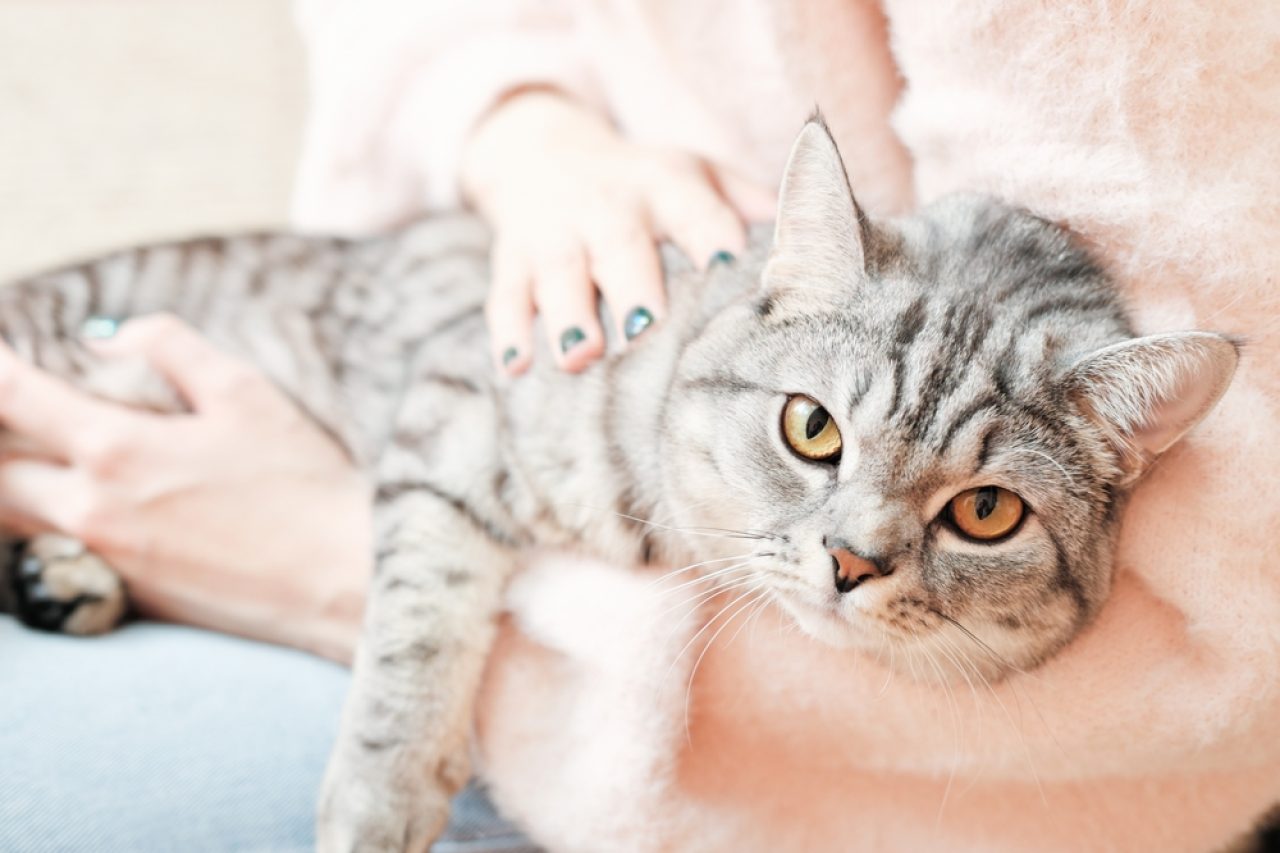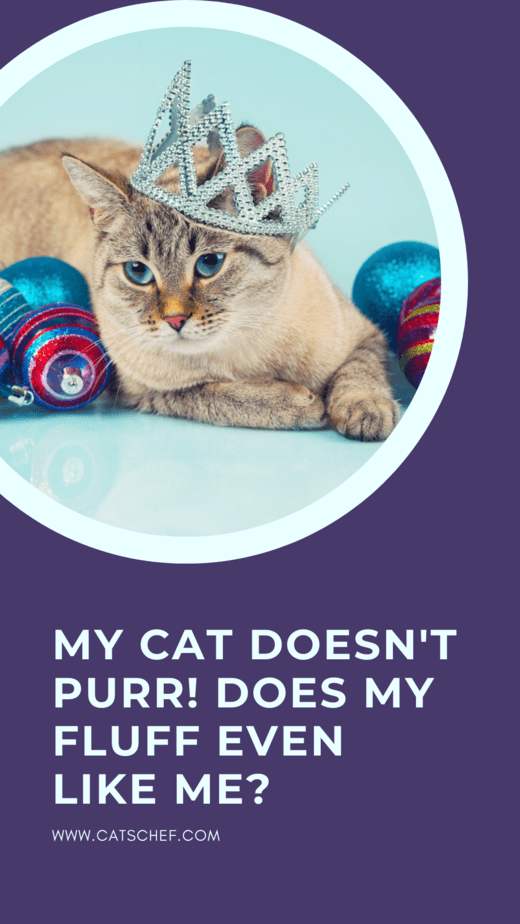📖 Table of Content:
Soft, cheerful purrs from your lovely feline are like a reward for every cat parent out there. We always take it as a sign that we’re doing something right and that our furbaby is happy with the life we provide for her. “But, my cat doesn’t purr…” you might be thinking, and we’re here to tell you – it’s completely normal.
If you’re giving your best to provide your kitty with plenty of attention, care, and quality time, we’re sure there’s nothing in her life that’s missing. Except for her purrs. But, that shouldn’t be a reason for concern or cause you to question all of your cat-parent decisions.
Hearing or feeling your fluff’s purrs is a wonderful experience and can even help with stress, so we get why you might be sad that your kitty refuses to do it. Nothing comforts a cat parent like the purr of their favorite fluff.
There’s no way for you to force purrs out of your feline buddy, nor should you try to do so. It’s important to make peace with it and look for other ways your cat may use to communicate with you.
Before we help you understand why your cat might not be purring, it’s important to know why purring happens in the first place. What does it mean, when does it happen, and why does it stop? We’re here to answer all of your questions, so let’s get right to it!
Why do cats purr?
Since they’re born blind and deaf, our lovely fur friends learn to purr to bond with their mothers early in their kittenhood. At first, it’s simply a way for a mother and her kittens to communicate. The vibrations from their mommy help guide babies to suckle.
Once they grow up, our favorite furry friends use purring for other purposes, but still mainly for communication. Usually, purring is a sign of contentment and peace in cats, and we often see it as our furbabies asking for some affection.
Although it’s mainly used for communicating affection and pleasure, purring also has other functions such as letting their cat parents know they’re hurt, ill or distressed. If your feline used to purr but then suddenly stopped, followed by lethargy or decreased appetite, you should take her to the vet.
If there are no other symptoms, it’s completely normal to wonder “What’s the reason my cat doesn’t purr?!” The explanation is usually pretty straightforward – some cats simply don’t. Of course, there could be many reasons for that kind of behavior, but it’s usually nothing worth stressing about.
My cat doesn’t purr – 5 potential reasons why
If your cat stops purring, it could be that she’s unhappy, stressed out, or dealing with something. Any behavioral change shouldn’t be ignored. It’s best to take your cat to the vet to make sure she’s okay, or to deal with anything she might be experiencing on time.
However, more often than not, it’s completely normal and nothing to worry about. If your cat generally doesn’t purr, it could be that she’s simply not that type of kitty. There could be many reasons behind that, and we’ll cover the 5 most common ones, so you can find one that might resonate with your feline.
1. It’s because of her origins
The genes are equally important in cats as they are in humans. If your kitty had a mother who wasn’t a big purrer herself, there’s a high chance she won’t be, either. As kittens learn this behavioral trait pretty early, it’s normal that your fluff never purrs if she never had the opportunity to learn how to.
On top of that, many people believe that felines born to feral mothers usually don’t purr. This is due to the fact that mothers who live in the wild discourage their kittens from purring as it could potentially attract predators.
Although this should be something you take with a grain of salt, it’s still a possibility. Cats who spend their lives outside tend to be a lot quieter than our domesticated fluffs.
Our indoor cuddle buddies are used to interacting with humans and they rely on bonding with us, while feral cats try to stay as far as possible. Because of that, the fluffs we have at home tend to be more talkative and generally louder, as they realize that’s the best way we can communicate.
2. She might have a vocal cord injury
If your feline used to purr but suddenly stopped, it might be a sign that she’s dealing with some health issues or some kind of injury. Our best advice is to pay a visit to the vet and not ignore this change in her behavior.
Your kitty’s larynx is involved in producing the sweet purrs we all love. Because of that, any injury to her vocal cords might cause your sweet feline to avoid purring altogether.
If it’s not the injury, there’s a possibility she might be having some health issues you weren’t aware of. Several medical conditions can affect your purrer’s larynx, such as cancer, trauma, or abscesses. If your kitty’s dealing with any neurological issues, they could also have an effect on her purring.
Any injury to her teeth or any other part of her body can cause your feline to be stressed and unhappy. When she’s feeling under the weather, it’s normal that she stops purring. If this is the case, you’ll notice other symptoms such as loss of appetite, whining, and hiding, and it’s best to take her to the vet right away.
3. Your furbaby might be stressed out
If your cat is feeling stressed out – she won’t purr. Simple as that. It’s easy to notice stress in cats because it’s accompanied by more than just the lack of purring. Your kitty might become aggressive, and want to spend more time alone. She’ll probably also refuse to eat.
Cats are highly affected by changes and they can be a great source of stress for them. Some other things that can stress out your kitty include:
- Strangers in your home
- A new partner that’s taking your attention
- Work changes that prevent you from spending more time with your fluff
- Changes in your home or your routine
- Loud noises and being chased
- Loss of a loved one.
Luckily, the stress in cats can easily be treated, as long as you find the source first. Cat pheromones or a few changes in your lifestyle can make a huge difference and get your kitty back to her purring self.
4. She’s too old for that
Listen, once your feline companion enters her senior age, she’ll leave a lot of things in the past, and purring might be one of them. She’s done with all the crazy meowing, jumping around, and frequent zoomies.
Next time you start talking about how “my cat doesn’t purr because she doesn’t love me anymore”, remember that maybe she’s just too old for all that…
When your fur bestie decides it’s time to retire, she’ll live a life that’s a lot calmer. It’s often the case that this stage influences cats’ vocalization, as well. She might meow less, and her purrs could become softer, or stop completely.
On the other hand, some senior cats might be more vocal in their old age because they feel more discomfort. Every cat is different, and it’s important to monitor your feline and react adequately to the behavior she’s displaying, without comparing her to others.
5. She prefers other ways to communicate
Felines are not much different than humans in the sense that they’re all unique. Just like us, they have character and preferences and should be dealt with based on your own observations of them. We can’t expect one thing to be relatable for every kitty.
Because of that, not all cats prefer purring as a form of communication. If you’re thinking “my cat doesn’t purr” and you’re blaming yourself for this, you probably have nothing to do with it. It’s more likely that that’s simply not a part of her behavior.
Our kitties have many forms of communication, and purring is just one of them. To understand your cat completely, it’s important to learn about the many ways they communicate with us.
Other ways your cat can communicate with you
Okay, your cat doesn’t purr. So what?! Nothing’s lost, and there are other ways that your fluff is using to communicate with you. Make sure not to obsess over her lack of purring so much that you miss all the other things she’s trying to let you know.
The most common and obvious way our cats communicate with us is by meowing. Since that’s how they communicate when they are kittens, our feline buddies realized that’s the best way to talk to us, too. Different meows mean different things, so good luck trying to depict what your fluff is trying to tell you.
Tail posture and general body language are other things you should pay attention to, as they can tell you a lot. For example, a straight tail with relaxed fur means your cat is happy, while a low and tucked tail indicates she’s feeling anxious. These little signals are a great way to know how your feline is feeling.
Cat’s eyes can also tell you a lot, especially when she’s happy and comfortable. If she’s giving you long, slow blinks, your snuggle bug is letting you know she’s happy and comfortable around you. When she keeps her eyes closed, it means she trusts you completely.
You can rest knowing your dear cat is happy even if she doesn’t purr. Especially if she’s using every opportunity she can get to bump you or rub against you. That’s her silent but sweet way of letting you know she loves you, so make sure you give her a well-deserved cuddle session to give some love back.
How can I encourage my kitty to purr?
We’re happy to tell you that “My cat doesn’t purr.” can be a complaint of the past. Yes, some cats don’t purr at all, but if your kitty used to do it before and then stopped, or she’s just not purring as much, there are some things you can do to encourage her.
Turning your purring machine back on can be done in a few simple ways that you’ll probably enjoy, too. For starters, try spending more time petting your cat. Our affectionate fur buddies love an occasional petting session. Making her feel content and happy with good ol’ scratching might make your fluff want to start purring again.
Although they like to act cold, our snuggle bugs LOVE to cuddle. Lying next to your kitty while she’s napping, or cuddling her to sleep while you’re under warm and soft blankets, might induce some long-awaited purrs.
This might sound silly to some of you, but you should try talking more to your dear furball. Although you don’t speak the same language and she probably won’t understand what you’re telling her, your kitty will love the fact that you’re talking to her. Read her your grocery list in a soft tone and she’ll enjoy every second of it.
And, lastly, make some adjustments to her environment. Yes, our furry companions aren’t big fans of changes, but sometimes they can be good. Give her a lot of room to explore and roam around, with a few comfy spots where she can hide and rest. She’ll be a happy little fluff, and purrs should come naturally!
